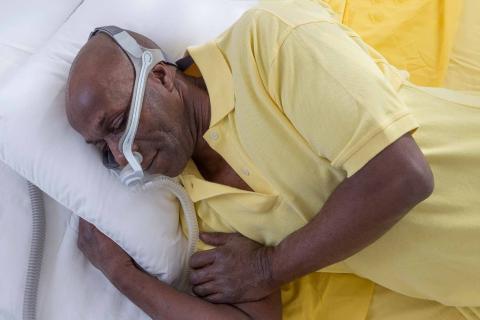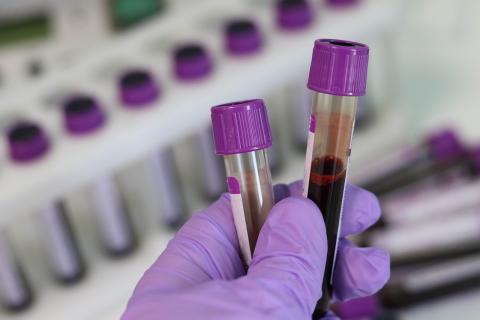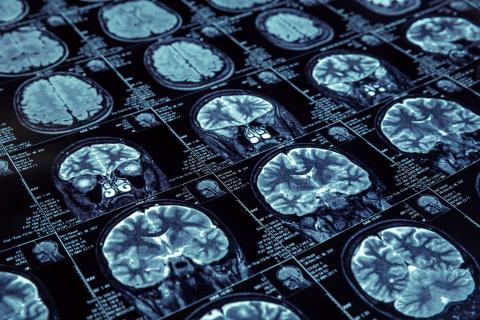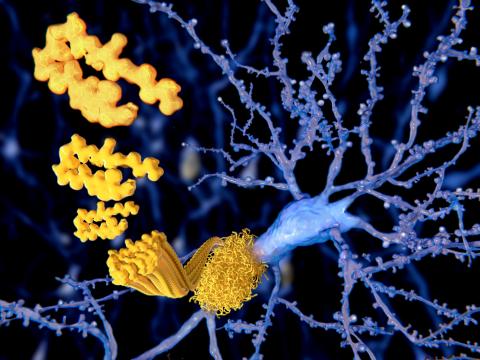Spanish Society of Neurology
If you are the contact person for this centre and you wish to make any changes, please contact us.
Coordinator of the GEEMENIR group (Study Group on Multiple Sclerosis and Related Neuroimmunological Diseases ) of the Spanish Society of Neurology and head of the Neurology Section of the Ávila Health Care Complex
Member of the Department of Neurology, Stroke Unit of the Central University Hospital of Asturias (HUCA) and Associate Professor of Health Sciences, University of Oviedo
Neurologist specialising in Parkinson's disease at the Comprehensive Neuroscience Centre HM Cinac, editor-in-chief of MDS Podcast and coordinator of the Ad Hoc Committee on Neurotechnology, Innovation and Entrepreneurship of the Spanish Society of Neurology.
Head of the Neurology Department at Hospital Clínic de Barcelona and secretary of the Spanish Society of Neurology's Study Group on Behaviour and Dementia

An investigation published in JAMA Neurology concludes that obstructive sleep apnoea is associated with an increased risk of Parkinson's disease, according to the medical records of more than 11 million American war veterans, mainly men. The article also indicates that this risk can be reduced by early treatment with continuous positive airway pressure, suggesting intervention in sleep-disordered breathing as a strategy for preventing neurological diseases.

Prenatal exposure to triptans—alone or in combination with other migraine medications—does not increase the risk of developmental disorders in children up to age 14, according to research published in Neurology. The study is based on data from more than 26,000 pregnancies in a national registry in Norway and includes autism spectrum disorders, language disorders, and attention deficit hyperactivity disorder, among other diagnoses.

Researchers have found specific antibodies in the blood of patients years before they showed symptoms of multiple sclerosis. This group of antibodies was present in 10% of the 250 people who later developed the disease, and were part of a sample of over 10 million US military personnel. The finding could have potential for early detection of multiple sclerosis, says the research team in a paper published in Nature Medicine.

Chronic exposure to various air pollutants has been linked to an increased risk of stroke, but the short-term effects have been less well studied. A review of 110 papers and more than 18 million stroke cases shows that recent exposure - in the five days prior to stroke - also increases the likelihood of stroke. The results are published in the journal Neurology.

An international team of scientists, led by Stanford University (United States), has designed a study to analyse the relationship between herpes zoster virus infections and the development of dementia. To do so, they took advantage of the introduction of the Zostavax vaccine against this virus in 2013 in Wales (UK), which people over the age of 80 could not receive. After reviewing data from people around this age over the following seven years, they concluded that the vaccine reduced the relative risk of dementia by 20%. According to the authors, their study, which is in prepublication form and has not been peer-reviewed, "leads to the conclusion that shingles vaccination is most likely an effective way to prevent or delay the onset of dementia".

Swedish research involving more than 6,000 male footballers in the country's top division (between 1924 and 2019) indicates that they were 1.5 times more likely to develop a neurodegenerative disease compared to the population analysed who were not involved in professional football. Unlike outfield players, goalkeepers did not have this increased risk, which, according to the authors, supports the hypothesis that impacts to the head when striking the ball could explain the increased risk. The study is published in The Lancet Public Health.

A few weeks ago, a press release from the Biogen and Eisai companies reported significant results from their lecanemab antibody for the treatment of early-stage Alzheimer's. The data from the phase 3 trial are now published in the New England Journal of Medicine, coinciding with the CTAD conference on Alzheimer's disease clinical trials in San Francisco. Data from the phase 3 clinical trial are now published in the New England Journal of Medicine, coinciding with the 15th CTAD Alzheimer's disease clinical trials conference in San Francisco.

Science magazine has published a report revealing multiple indications of fraud in one of the most cited publications on Alzheimer's disease. We explain what it means for the science that studies this disease.